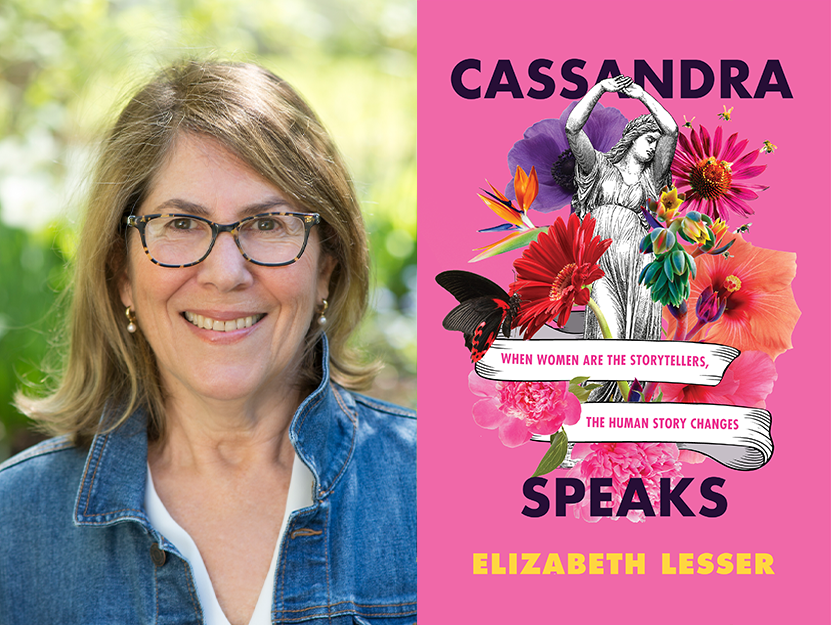
Hello, Impostor Syndrome!
A few years ago, I spoke at a weeklong women’s leadership retreat convened by Sir Richard Branson—author, philanthropist, and the founder of the Virgin Group of businesses. Branson is also a daredevil who has bungee jumped off the roof of a tall building, made several attempts to circumnavigate the globe in a hot-air balloon, and crossed the Atlantic Ocean in a speedboat. His Virgin Galactic’s passenger spaceplane recently broke the sound barrier at high altitude. When I met him at the retreat, he had returned—just the day before—from a groundbreaking diving mission to the bottom of Belize’s Great Blue Hole, the world’s deepest marine cavern.
I was one of five people leading sessions during the retreat, and although I’ve spoken to groups for years, I still deal with what many call the impostor syndrome. Perhaps you have heard of it. Perhaps you have it, too. You probably do, since studies done all over the world reveal that a large percentage of women of all ages and backgrounds suffer from the impostor syndrome. Research psychologists Pauline Clance and Suzanne Imes coined the term. They write, “People who feel like impostors live in fear of being ‘found out’ or exposed as frauds.” Men suffer from the syndrome, too, but it is more prevalent among women, and especially among women of color. Mental health expert Lincoln Hill points to studies that reveal “a racialized component to the impostor syndrome,” noting how experiences with racial discrimination, negative stereotypes, and underrepresentation only compound the impostor syndrome.
The New York Times gender editor Jessica Bennett defines the impostor syndrome as “that nagging feeling that you’re not good enough, that you don’t belong, that you don’t deserve the job, the promotion, the book deal, the seat at the table.” That nagging feeling traveled with me to Sir Richard Branson’s leadership retreat. The makeup of the teaching team didn’t help: a business guru, a NASA astronaut, a famous actress, Branson himself, and me. On the first night of the retreat we gathered with the participants, themselves successful entrepreneurs and creative types. Richard Branson welcomed everyone and gave some opening remarks, regaling us with thrilling stories about his exploits—both high above the Earth in space, and deep within it, most recently at the bottom of the Great Blue Hole. His words were both inspiring and practical. He spoke about hard work and teamwork, also about the quality of fearlessness and adventure that leadership entails: “The brave may not live forever,” he said, “but the cautious do not live at all.”
Later that night, in my hotel room, just me and my impostor syndrome, I thought about the presentation I was to make the next morning. There was nothing I could say that would live up to the adventurous words and deeds of Richard Branson, nor to what I imagined the business guru, astronaut, and actress would say during the next days of the retreat. “Who the hell am I?” I thought. “I have never remotely done something like dive into the deepest hole in the ocean or vault myself into outer space.” The lessons and the practices I had prepared suddenly seemed pale and cautious. But it was too late to alter my plans. I had been invited to begin the retreat with a session of meditation and other ways of building up one’s inner strength and sense of purpose. But what would the women think about the journey I was about to lead them on? Would they want to go into the Great Blue Hole of their deeper feelings and dreams, their wounds and fears, in order to uncover their true courage, their own voice? Would they have the patience to venture into “inner space,” or would that seem boring and wimpy?
The next morning, I took my place in front of the group, which included the astronaut, the actress, the business guru, and Sir Richard Branson. Bolstered by sleep and coffee, I decided right then and there to start the day by telling my own brand of adventure story—how I had spent my life taking deep dives into the human heart, learning about what makes us tick, what holds us back, and how we might become more courageous in our authenticity, our intimacy, our communication. I spoke about women and leadership and how we are braver than we think and how it’s our job now to redefine what courage and adventure and success look like. How the energy we need and the purpose we crave is inside of us, waiting to be excavated and dignified. But first, we must explore a blue hole as deep as the deepest one on Earth, and travel into inner space where we can gain new perspectives and dream new dreams. “This takes a lot of courage,” I said. “Who’s game?” They all raised their hands. We spent the day in quiet meditation and also in exercises that felt risky to many of the women in the room: sharing truths they rarely shared; turning and facing their impostor syndrome; having conversations that brought up fears, wounds, and decisions that needed to be made. I was touched by how game they all were. They were more than game. They were brave. At the end of the day I re-quoted Sir Richard Branson: “The brave may not live forever,” I said, “but the cautious do not live at all.” I thanked them for being a different kind of brave, for having the courage to be real with themselves and with each other. I told them that the work we did would help them become the kind of leaders the world needs now.
Excerpted from Cassandra Speaks: When Women Are the Storytellers, the Human Story Changes
(HarperCollins, 2020)











0 comments to "Hello, Impostor Syndrome!"